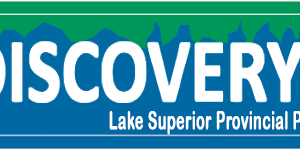The Huron-Superior Métis Community has unveiled a new food security initiative. The goal of the project, launched on the eve of the 20 th anniversary of the landmark Powley Decision, is to identify and close food-related gaps faced by Métis citizens in the region.
“At its heart, the Powley case was about a Métis community’s inherent right to feed and care for its families,” says Regional Councillor Mitch Case. “Twenty years later, we still face many challenges to ensuring that every Métis family has access to healthy and nutritious foods, including the traditional foods that our community historically relied upon.”
Case has received numerous calls and messages from Huron-Superior Métis Citizens sharing their concerns about how inflation, climate change, and other factors are making it increasingly difficult to meet their food-related needs. These issues were made even worse by the Covid pandemic and are often felt most by Métis citizens who already face cost-of-living challenges.
“What we hear is that it’s our Métis elders and families with young children that are facing the greatest food security challenges,” adds Case. “As a Métis government, it’s our duty to work to meet the needs of our citizens—especially when mainstream programs and services are falling short. We are committed to doing just that.”
The first step, Case says, is to collect accurate Métis-specific regional food security data that paints the full picture of Huron-Superior Métis citizens’ food-related needs, including where the needs are greatest. To do so, the community has released its first-ever Huron-Superior Métis Food Sovereignty Survey. The survey was designed using the Canadian Community Health Survey, which will enable apples-to-apples data comparison with broader regional and national benchmarks. However, the survey also includes many additional components that examine unique aspects of Métis food-related culture and practice.
“The leadership in the Region believe in evidence-based decision making,” explains Case. “We need to know the challenges and barriers Métis citizens are facing. But we also need to know where the strengths are—what knowledge and skills our citizens have, what food-related equipment they already own, and how we can best help the Huron-Superior Métis Community achieve its food sovereignty vison.”
The ultimate goal is for Huron-Superior Métis citizens themselves to identify the highest priority needs and opportunities that can guide future community investments, such as those in community food programs, land, food-related equipment, or skills development. “We know we don’t have the resources to do all the things we want to,” adds Case. “Gathering as much data as we can from as many Métis citizens as we can will help us make the best possible decisions about how to invest for the entire community’s future.”
Any verified Métis Nation of Ontario citizen living within the Huron-Superior Métis Community can complete the survey at https://bit.ly/region4foodsurvey before September 30 and be instantly entered to win dozens of prizes, including a Bradley Original 4-Rack Electric Smoker, Excalibur 9-Tray Food Dehydrator, and gift cards to Huron-Superior Métis businesses.
The Huron-Superior Regional Métis Community (Métis Nation of Ontario – Region 4) includes the Métis Nation of Ontario citizens in the area from Sault Ste. Marie, east to Massey and Sault Ste. Marie, north to White River inclusive. Citizens are represented at the local level by the Historic Sault Ste. Marie Métis Council and the North Channel Métis Council.
- Ladies Night Golf – July 24, 2024 - July 26, 2024
- Red Pine Confirms Independent Sampling and Assaying - July 24, 2024
- Men’s Night Golf – July 18 - July 20, 2024
 Wawa-news.com You can't hear the 'big picture'!
Wawa-news.com You can't hear the 'big picture'!

